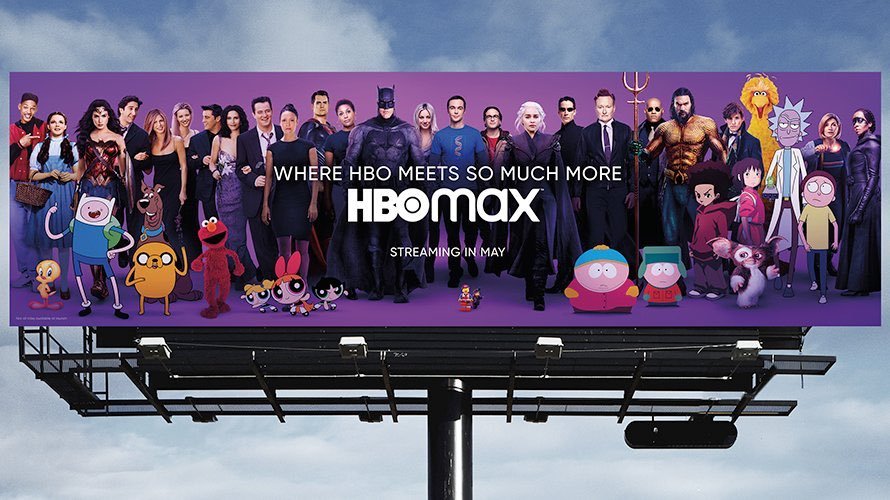
The smarter way to stay on top of the streaming and OTT industry. Sign up below.
You are now subscribed
Your newsletter sign-up was successful
Remember last week when I was wondering whether Warner would make all of its upcoming releases free for HBO Max subscribers (the way it had just announced it was doing with Wonder Woman 1984?
Well now we have an answer. They are.

I’m not sure why this is particularly surprising (other than the fact that Warner’s parent company, AT&T, hasn’t exactly been on a winning streak). Theaters in most cities are closed and will remain closed until this summer, possibly even until next fall.
So what was Warner supposed to do?
Yes, they could have charged $20 or $30 for each movie on HBO Max, the way some of their more magical competitors did, but to what end? It would only have wound up pissing off a lot of people who have eight other multibillion dollar streaming services to choose from, and led them to cancel as soon as the movie they wanted to see was out.
Also read: HBO Max Gets WarnerMedia’s Entire 2021 Film Slate Day and Date
This way, HBO has an audience that is far more likely to stick around, which means they’re also likely to start exploring what else is on Max -- say, the Criterion Collection of great old movies and other gems that are buried within the new app.
The smarter way to stay on top of the streaming and OTT industry. Sign up below.
I mean, if you’re asking people to fork over $15/month, you’ve got to give them something, especially since very few people were biting before.
As I’ve been noting since last spring, Max has a tricky sales proposition: WarnerMedia has got to convince people who didn't previously subscribe to HBO, either because of the cost or (more likely) the programming, that Max, and its new programming and massive library, is now worth subscribing to.
And, given there isn’t going to be much in the way of new programming (thank you, COVID), that it's still worth subscribing to just for its massive library.
At the same time, they’re going to have to convince the 50 million or so people who were already subscribing to linear "OG" HBO, either via an MVPD or via the HBO Now app, that not all that much has changed, and that the sort of programming that drew them to HBO in the first place would still be getting made under the Max umbrella.
WarnerMedia also has to show them that there would be a whole lot of other programming on there that they’d want to watch, too, all for the same $15/month, an argument made all the more challenging by the fact that most of the competing eight Flixes are featuring “HBO-like” programming now, too. And they're charging considerably less money for it.
So, to recap, WarnerMedia has to tell new subscribers “we’re nothing like that HBO you didn’t want to subscribe to,” while reassuring current subs that “we’re exactly like that HBO you were subscribing to.”
That's not a position I’d want to be in.
Read More: Did HBO Max Get The Distribution Lift It Needs With Amazon Deal?
There’s yet another player that’s going to be affected by Warner’s movie announcement, and that’s Roku.
WarnerMedia has been trying to strike a deal with both Amazon and Roku since they launched the Max app this spring.
The problem, to recap, was that both Amazon and Roku had been selling HBO Now in their channel stores, which gave them access to (a.) a percentage of subscription fees; (b.) a percentage of ad revenue; and (c.) a whole lot of data about what viewers were up to.
Worse still (from Warner’s POV) was that they were mixing HBO shows into their main channel store menus on Fire TV and the Roku Channel, so that viewers could easily avoid using any HBO app at all, thus further frustrating Warner attempts at collecting data and establishing a strong brand image.
The fact that HBO Max did not have many new originals of the type that might get viewers to put pressure on Amazon and Roku to carry Max didn't help their bargaining position, nor did the very confusing rollout of Max, which required flow charts in consumer publications. If social media was any indication, viewers were putting all the blame for the hold-up on HBO.
That all got a little better when HBO and Amazon signed a deal last month that put Max onto Fire TV, which thus put pressure on Roku, though there’s been no movement on that front thus far.
The movie announcement will clearly put pressure on both parties to get a deal done in time for Christmas (the Wonder Woman release date), but who has the upper hand is still up in the air.
I want to say it gives HBO a great bargaining chip. “If you don’t carry HBO, people will buy Fire TV sticks or figure out they can use the Max app on their smart TVs."
But Roku can counter with, “all the more reason for you to give in to us as no one is actually going out to buy a Fire TV or Google device just to watch a single movie and boy are all those potential subscribers going to be pissed you’re not on Roku, especially since they seem to think it’s all your fault.”
So we’ll have to keep an eye on how that one resolves itself and who blinks first.
The final players here are the theater chains and their windows.
Read More: NBCU's Peacock Takes Flight on Roku, Finally
Right now they’re in no position to fight back, and no one has any idea what state most of them will be in when the pandemic is finally over and/or how long it will be before audiences feel good about going back to theaters again either.
WarnerMedia and other studios have long wanted to shorten the windows between theatrical release and streaming, and this might allow them to prove that the sky won’t fall if they do same day releases.
The thing to watch here is that Warner is saying they will be doing this through the end of year, though if all goes according to plan, things will be back to normal by fall 2021 at the latest, which leaves the critical last few months of 2021 with theaters open and movies streaming the same day on HBO Max.
How that plays out, as they say in the business, will be one to get your popcorn out for.
Alan Wolk is the co-founder and lead analyst for media consultancy TV[R]EV

